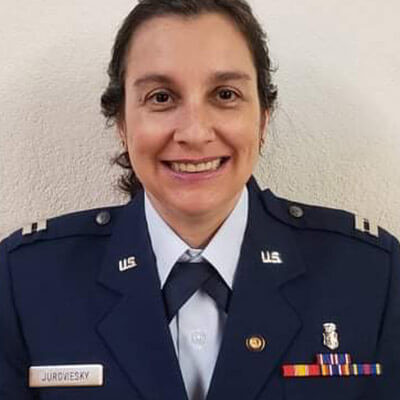Ketamine Best Practices
Log in to view the recording.
*Exclusive for members.
Thursday, September 30th at 5 pm Pacific, 8 pm Eastern >> Watch now >>
Join Us For an EXCLUSIVE Panel Discussion for Members of The Psychedelic Medicine Association:
Ketamine Best Practices
Panel Moderator:

Lynn Marie Morski, MD, ESQ
President - Psychedelic Medicine Association
Panelists:

Veronika Gold, MFT
Polaris Insight Center
Veronika Gold, a psychologist from the Czech Republic and a licensed Marriage and Family Therapist in California and Oregon, has an expertise in the treatment of anxiety, depression, and PTSD. Veronika is a co-founder of Polaris Insight Center in San Francisco, a clinic providing training, consultation and Ketamine Assisted Psychotherapy treatment for depression, anxiety, PTSD, and other mental health issues. Veronika Gold is a also a sub-investigator and therapist at San Francisco Insight and Integration Center, site participating in the Phase 3 MDMA-Assisted Psychotherapy clinical trials for the treatment of PTSD sponsored by MAPS. She is also a supervisor and trainer in training for MAPS MDMA-AT. She is a certified Somatic Experiencing Practitioner and a Realization Process Teacher. Veronika provides Psychedelic Integration Therapy and serves as a consultant, trainer, and presenter on Psychedelic Assisted Therapies.

Brent Turnipseed, MD
Roots Behavioral Health
Brent Turnipseed, or “Dr. T”, is a native Austinite and board-certified psychiatrist. He co-founded Roots Behavioral Health with his wife, Andrea, in 2016 with the goal of making innovative psychiatric care more accessible to central Texans. They began with only six full-time employees and today, Roots has a staff of nearly 40, and they're still growing! By working with physician assistants, Brent and his team have been able to meet the community’s demand for superior behavioral healthcare. Brent and Andrea began offering ketamine-assisted psychotherapy (KAP) to their patients in 2018 and Roots has now administered over 2,000 KAP sessions to those most in need– particularly folks with refractory depression. Brent and Andrea–in conjunction with Phil Wolfson and the Ketamine Training Center–published the first observational study of KAP. Under Brent's clinical leadership, Roots is now recognized as one of the preeminent models of integrative behavioral healthcare, and he hopes to transform the industry, beginning with Texas. Brent has a passion for research that evaluates new treatments and discovers best practices for implementation in the clinical setting. Brent's future avenues for Roots' clinical research: psychedelic-assisted psychotherapies, gut-brain axis and the microbiome, chronic inflammation as it relates to brain health, mindfulness-based cognitive therapy, pro-brain diets, and exercise for optimal health.

Kimberly Juroviesky, CAPT USAF (retired), WHNP, CNM
Ketamine Task Force
Kimberly Juroviesky is a retired Nurse Practitioner and Nurse Midwife who trained at Columbia University and The University of Medicine and Dentistry of New Jersey. She was injured on active duty while in the USAF and developed Complex Regional Pain Syndrome which unfortunately, forced her to retire from her career early. She began researching and reading everything she could get her hands on about using Ketamine to treat CRPS in 2011 and then began getting Ketamine Infusions in 2015 as part of a research study. Kimberly has always been driven to help people so she started up a Facebook group to support patients in their Ketamine journeys when she realised that she wanted and needed to connect with others also going through treatment with Ketamine. She became very close with a number of Ketamine providers who asked her to start a second Facebook group to allow Ketamine providers to connect with one another. Kimberly then was asked by several people to write a book to help patients to know what to expect during their infusions. She ended up writing, Ketamine Infusions: A Patient’s Guide in 2018 and released the second edition in 2019. Kimberly has found a new passion in being an advocate for the use of Ketamine to treat both mental health and pain diagnoses. She advocates for and talks with both patients and providers around the globe on a daily basis. One ongoing issue that Kimberly has been fighting to overcome has been the issue of lack of insurance coverage for Ketamine infusions hindering access to care for so many people. Kimberly has come together with a small group of patients, providers, and a tech partner, OSMIND to form the Ketamine Taskforce to fight for better access to safe care for every single person who might benefit from Ketamine for pain or mental health.
We’ve spent the past few months talking a lot about some of the psychedelic medicines that may be FDA approved soon, but this month we turn our attention to the one psychedelic medicine available now: ketamine.
Clinicians are likely familiar with ketamine as an anesthetic, but may not know about its uses in mental health. Beyond that, many questions arise such as which form of ketamine to recommend for which patient, what should one look for in selecting a ketamine center, and how can we ensure better access to this powerful medicine?
To answer those questions, we are honored to have two panelists on this month’s webinar to cover:
- What ketamine is
- How it works
- What conditions it can treat
- The many forms in which it comes
- Ketamine-assisted therapy
- Ketamine best practices
- Increasing access to ketamine
…and much more!
As always, there will be ample time for audience Q & A, so you’ll get to interact with the panelists directly!
So please join us for this live panel discussion on Thursday, September 30th at 5 pm Pacific, 8 pm Eastern. This is exclusively for members of the Psychedelic Medicine Association, so if you have not yet registered, please do so here. And for members, please register for the panel here. A link to the recording will be available afterward if you cannot make it to the live event.
Hope to see you all on the 30th!
You can find the Psychedelic Medicine Association on Twitter, LinkedIn, and on Facebook.
